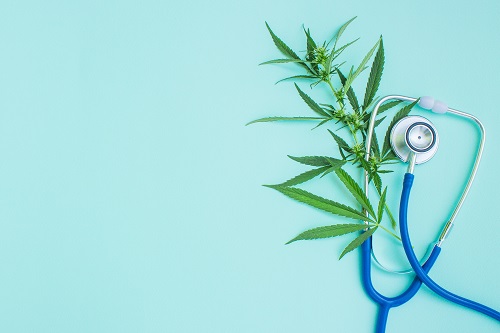Navigating the world of medical marijuana can be a daunting experience, especially if you’re preparing for your first doctor‘s appointment. At All Natural MD, we understand the importance of feeling informed and prepared. Our clinic has been proudly serving the State of Florida since 2016, helping close to 20,000 patients benefit from medical cannabis. Whether you’re seeking alternative medicine or looking to understand if you qualify, this guide will walk you through everything you need to know for your first medical marijuana doctor appointment.
Qualifying Conditions For Medical Marijuana
The first step in your journey is determining whether you qualify for medical marijuana under Florida law. The state has outlined specific conditions that make patients eligible. Some of the qualifying conditions include:
- Chronic pain
- Cancer
- Epilepsy and other seizure disorders
- Glaucoma
- HIV/AIDS
- Crohn’s disease
- Parkinson’s disease
- Post-traumatic stress disorder (PTSD)
- Multiple sclerosis (MS)
For a full list of qualifying conditions and comprehensive details, visit the Florida Department of Health’s Office of Medical Marijuana Use (OMMU) website.
Gathering Necessary Medical Records And Documentation
Before your appointment with a medical marijuana doctor, it’s crucial to gather all relevant medical records and documentation. These documents provide a comprehensive view of your medical history and current health status, which helps the doctor make an informed decision about your eligibility. Important records include:
- Recent medical records and progress notes
- Diagnostic test results (e.g., MRI, X-rays)
- A list of current medications
- Previous treatments related to your qualifying condition
If you’re unsure how to obtain these records, contact your primary care physician or specialty clinics for assistance.
Preparing A List Of Questions And Concerns
Having a list of questions and concerns ready for your medical marijuana doctor can ensure that your appointment is productive and informative. Consider asking the following:
- What are the potential benefits and risks of medical marijuana for my condition?
- What strains or products are recommended for my specific symptoms?
- How should I monitor the effects and side effects?
- Will medical marijuana interact with my current medications?
- How often should I follow up with the clinic?
Being prepared with questions helps you gain a clear understanding of medical cannabis and how it can fit into your treatment plan.
Different Strains And Methods Of Intake
Understanding the various strains and methods of intake is key to making informed decisions about your medical marijuana use. Different strains have different effects; some may be more effective for pain relief, while others may help with anxiety or insomnia. Common strains include:
- Indica: Known for its relaxing effects, often recommended for pain and insomnia.
- Sativa: Typically energizing and uplifting, helpful for depression and fatigue.
- Hybrid: A mix of indica and sativa, offering balanced effects.
Methods of intake are equally important and can include:
- Inhalation: Smoking or vaping for quick relief
- Edibles: Longer-lasting effects through ingestion
- Tinctures: Liquid extracts taken sublingually (under the tongue)
- Topicals: Creams and balms applied directly to the skin
Discuss these options with your medical marijuana doctor to determine the best approach for your needs.
What To Expect During The Evaluation Process
Understanding what to expect during your evaluation can help ease any anxiety or apprehension. Here’s a brief overview of the process:
- Initial Consultation: The doctor will review your medical history, current medications, and symptoms.
- Discussion Of Medical Marijuana: You’ll discuss the potential benefits and risks, strains, and methods of intake tailored to your condition.
- Physical Examination: A basic physical exam may be conducted to assess your overall health.
- Recommendations And Plan: If approved, the doctor will provide a treatment plan, including dosage and follow-up appointments.
- State Registration: If qualified, you will need to register with the Florida Department of Health to receive your Medical Marijuana Use Registry ID card.
Conclusion
Preparing for your first medical marijuana doctor appointment doesn’t have to be overwhelming. By understanding the qualifying conditions, gathering the necessary documentation, preparing questions, learning about different strains and methods, and knowing what to expect during the evaluation, you can navigate the process with confidence.
At All Natural MD, we’re committed to helping you discover the potential benefits of medical cannabis. Ready to take the next step?
Schedule your evaluation today and join the thousands of Florida residents who have found relief with medical marijuana. Call us at (800) 250-6737!
Medical marijuana has been legal in Florida including the city of Lakeland since 2016. prior to that, medical marijuana was available to patients who had the proper recommendation from their physician. There are several conditions and diseases that can be treated with medical marijuana in Florida including the city of Lakeland, but surprisingly it can still be difficult to get a Lakeland Florida medical marijuana doctor and find doctors who will prescribe the drug, even with legalization in effect. Medical marijuana continues to gain popularity as more states have legalized its use and it becomes easier to get your hands on one of the many strains available in dispensaries across the country. Yet we still find that obtaining a Lakeland Florida medical marijuana doctor approval can still be tricky for some folks, especially if you don’t live in one of the states that have legalized its use or if you live in an area where there are not many licensed doctors who can write prescriptions for medical marijuana. That is why we are taking this opportunity to write an all-inclusive guide to help you along the way. We will be covering everything you need to know about medical marijuana doctors in Florida including the city of Lakeland and how you can get one to use cannabis both medicinally and recreationally here in the Sunshine State. We will cover topics such as qualifying conditions, options for obtaining your Lakeland marijuana doctor approval, how much cannabis you can possess or purchase, as well as where you can consume your weed or purchase it locally or online in Lakeland Florida. Read on for everything you need to know if you want to request and appointment with a medical marijuana doctor appointment in Lakeland Florida.
Getting a Medical Marijuana Doctor Approval in Lakeland Florida
Getting a Lakeland medical marijuana doctor has become much easier in Lakeland Florida since 2016. You do not need to be terminally ill to get an Lakeland medical marijuana doctor and you will not have to join a state registry of patients. There are still some hoops to jump through, but it is well worth it for many people who live with chronic pain or debilitating conditions. In case you’re not aware, a Lakeland medical marijuana doctor gives you legal permission to use cannabis under state law. In other words, by obtaining an medical marijuana doctor certification, you could legally buy weed for your own personal use.
Benefits of Seeing A Lakeland Florida Marijuana Doctor
In America and including Lakeland Florida and surrounding areas, medical marijuana has proven to be a successful way of treating several ailments that patients suffer from including Anxiety, Pain, HIV/AIDS, cancer, glaucoma, and more. For those who qualify for medical marijuana use, there are many benefits that come with being able to own an Lakeland medical marijuana doctor. As an eligible patient, you will be allowed to purchase up to 2.5 ounces every 35 days which will be more than what a recreational user will be allowed. This means that if you have a legal marijuana doctor near you then you can travel across the state fear as long as your cannabis possession does not exceed your Lakeland marijuana doctor recommendation. You also won’t have to worry about paying taxes on your medicine because it is not considered taxable. Find out if you qualify for medical marijuana by contacting one of our patient liaisons today.
Applying With A Lakeland Florida Marijuana Doctor
There are several things you should know before seeing a marijuana doctor in Lakeland. First, it is important to note that even if you have an MMJ doctor recommendation, you cannot legally possess cannabis out of state. This is true even when visiting Lakeland Florida, one of the states where the recreational or medical use of marijuana is legal. That means that if you are traveling through these states on your way to somewhere else, it is best not to bring your MMJ doctor recommendation with you. If you are pulled over by law enforcement and found to be carrying marijuana, you could face serious charges. It’s also important to understand that because medical marijuana is still illegal at a federal level, any federally-funded institutions (like schools) will treat possession of an MMJ card as possession of illegal drugs. For example, students who have an MMJ card may lose their financial aid or other forms of student aid if they are caught using their medicine on campus. We do have some qualifying conditions to ensure you are a suitable applicant to visit a Lakeland medical marijuana doctor, such as being over the age of 18.
However, you are in luck if you suffer from conditions such as ADHD, anorexia, anxiety, arthritis, asthma, chronic pains, depression, epilepsy, insomnia, migraines, nausea, muscle spasms, or PTSD. These are conditions that are regularly prescribed via All Natural MD Lakeland medical marijuana doctor.
How Can I See A Lakeland Florida Medical Marijuana Doctor?
These are the next steps:
1. Schedule Your Appointment
Call All Natural MD Lakeland to schedule your appointment with a medical marijuana doctor. You will see and speak to a licensed Florida medical marijuana doctor and receive your approval or your money back! Getting started only takes a couple of minutes with All Natural MD Lakeland Medical Marijuana Doctors. Simply get started by filling out the form and answering a few questions by phone. We will then determine your eligibility and schedule your appointment. We handle everything else from there! You can check out one of many Lakeland medical marijuana clinic locations offered by All Natural MD Lakeland by visiting our website.
All Natural MD – Lakeland
1102 Florida Ave S. Suite 102
Lakeland, FL. 33803
Monday – Friday: 10:00 AM to 5:00 PM
2. In-Person Exam
The next step in the process is to meet with a Lakeland marijuana doctor who can properly review any ailments you might have. Once the doctor has determined that you are a successful candidate for a Medical Marijuana Doctor recommendation in Lakeland Florida. Also any caregivers you may want to add will be entered into the medical marijuana use registry system which can help you pick up and pay for your medical cannabis.
3. Receive a Medical Marijuana Doctor Certification
Once you are entered into the medical marijuana use registry, you are then able to finalize the last steps you need to secure your Lakeland Florida medical marijuana doctor approval. The process is still complex, but if you have your paperwork organized there will be no problems securing your Lakeland Florida medical marijuana doctor fast.
Don’t worry, we are here to help every step of the way. We will assist you through the entire process and now you can even receive a temporary approval the same day! Get in touch today to start the process with us. Contact All Natural MD Lakeland marijuana doctors today to get started (800) 250-6737.
When Is The Next Appointment With All Natural MD Tampa – Medical Marijuana Doctor?
Who Is All Natural MD Tampa Marijuana Doctor?
All Natural MD Tampa is a group of licensed and certified medical marijuana doctors in Tampa Florida and surround areas of Florida. All Natural MD Tampa has been in business since 2016 and has over 20,000 satisfied medical marijuana patients. If you live in Tampa Florida and are interested in seeing a medical marijuana doctor near you, please contact All Natural MD Tampa to schedule your appointment today. All Natural MD Tampa is a medical marijuana certification clinic in Tampa Florida!
All Natural MD Tampa
711 S. Howard Ave, Suite V200
Tampa, FL. 33606
Monday – Friday: 10:00 AM to 5:00 PM
What Conditions Qualify For Medical Marijuana In Tampa?
The first step in your journey is determining whether you qualify for medical marijuana under Florida law. The state has outlined specific conditions that make patients eligible. Some of the qualifying conditions include:
|
|
For a full list of qualifying conditions and comprehensive details, visit the Florida Department of Health’s Office of Medical Marijuana Use (OMMU) website.
Do I Need Medical Records With All Natural MD Tampa Marijuana Doctor?
Medical records are NOT required when seeing a All Natural MD Tampa medical marijuana doctor. The staff at All Natural MD Tampa will get a full list of your medical conditions and medications which will be verified through the E-FORCSE database.
When Is The Next Appointment With All Natural MD Tampa medical marijuana doctor?
The next available appointment with All Natural MD Tampa medical marijuana doctor is set for September 12th, 2024. If you or a loved one is seeking relief in form of medical cannabis, please contact our office to schedule an appointment.
Preparing A List Of Questions And Concerns
Having a list of questions and concerns ready for your All Natural MD Tampa medical marijuana doctor can ensure that your appointment is productive and informative. Consider asking the following:
- What are the potential benefits and risks of medical marijuana for my condition?
- What strains or products are recommended for my specific symptoms?
- How should I monitor the effects and side effects?
- Will medical marijuana interact with my current medications?
- How often should I follow up with the clinic?
Being prepared with questions for your All Natural MD Tampa medical marijuana doctor could help you gain a clearer understanding of the effects of medical cannabis and how it can help treat your medical conditions.
Different Strains And Methods Of Intake
Understanding the various strains and methods of intake is key to making informed decisions about your medical marijuana use. Different strains have different effects; some may be more effective for pain relief, while others may help with anxiety or insomnia. Common strains include:
- Indica: Known for its relaxing effects, often recommended for pain and insomnia.
- Sativa: Typically energizing and uplifting, helpful for depression and fatigue.
- Hybrid: A mix of indica and sativa, offering balanced effects.
Methods of intake are equally important and can include:
- Inhalation: Smoking or vaping for quick relief
- Edibles: Longer-lasting effects through ingestion
- Tinctures: Liquid extracts taken sublingually (under the tongue)
- Topicals: Creams and balms applied directly to the skin
Discuss these options with your medical marijuana doctor to determine the best approach for your needs.
What To Expect During The Evaluation Process
Understanding what to expect during your All Natural MD Tampa medical marijuana doctor evaluation can help ease any anxiety or nervousness it may present. Here’s a brief overview of the process:
- Initial Consultation: The doctor will review your medical history, current medications, and symptoms.
- Discussion Of Medical Marijuana: You’ll discuss the potential benefits and risks, strains, and methods of intake tailored to your condition.
- Physical Examination: A basic physical exam may be conducted to assess your overall health.
- Recommendations And Plan: If approved, the doctor will provide a treatment plan, including dosage and follow-up appointments.
- State Registration: If qualified, you will need to register with the Florida Department of Health to receive your Medical Marijuana Use Registry ID card.
At All Natural MD Tampa medical marijuana doctor, we’re committed to helping you discover the potential benefits of medical marijuana in Tampa. Ready to take the next step?
Schedule your evaluation today and join the thousands of Tampa Florida residents who have found relief with medical marijuana. Call us at (800) 250-6737!





